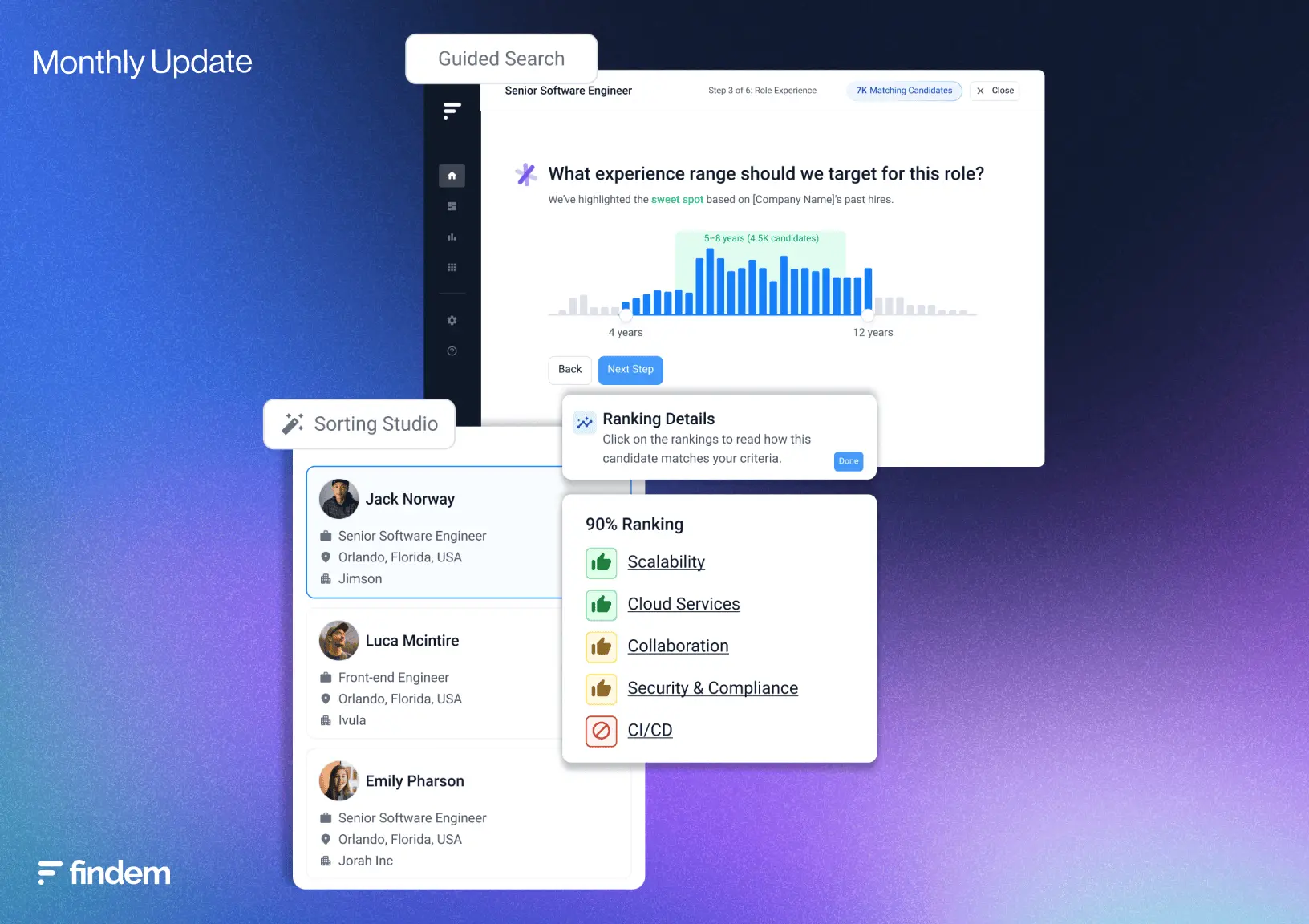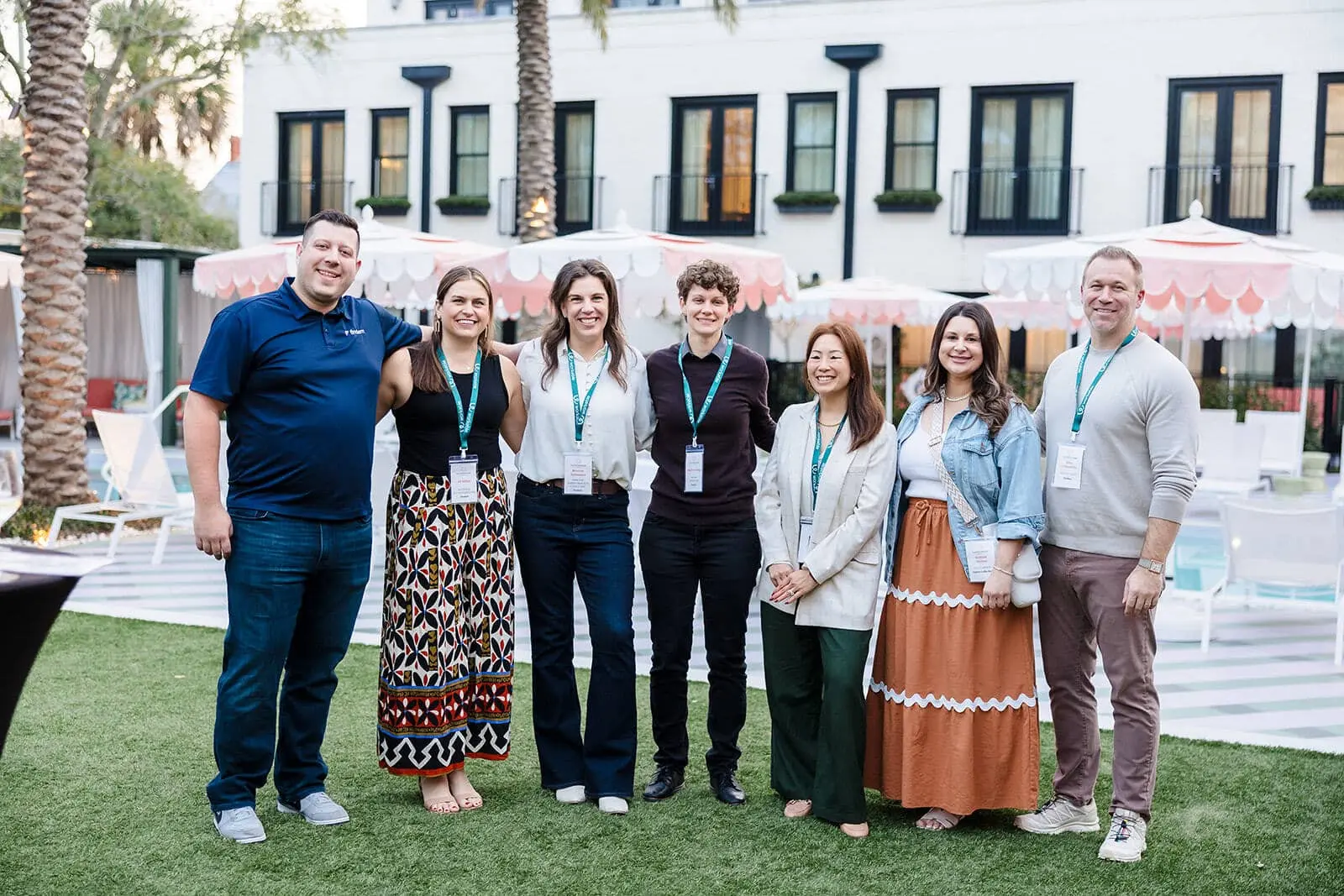.svg)
Hiring the next generation: Tips from a millennial
.svg)

Quiet quitting, the Great Resignation, increased cost of living, inflation, and now a possible recession? There’s been no shortage of challenges for talent leaders to tackle this year. You can’t predict the future, but you can prepare for it by focusing on the facts.
Thousands of recent graduates are now in the job market (yes, I’m talking about Gen Z). Amidst rolling hiring freezes, it’s in your best interest to find the best-fitting talent for your organization the first time around, not on the second, third, or fourth try.
So, how do you attract the smartest, hardest-working, and most loyal people to your team? The answer starts with understanding the expectations and values of younger workers. You can use this knowledge to improve your employer branding and create a more attention-grabbing, candidate-friendly experience for the next generation of leaders.
What does the next generation value in their job? Like the millennials before them, Generation Z has high expectations. Undergraduate students expect to make $103,880 in their first job, but the average starting salary is actually only $55,260. They value money and job security, but there’s a greater emphasis on work environment, work-life balance, and a company’s support for social causes.
All of these factors will be addressed in detail, but first, who are they and how can you start hiring Gen Z?
Who is Generation Z?
Millennials and Gen Z are often lumped into the same category, but there's more that separates them than age. Millennials were born between 1981 and 1996, whereas Gen Z was born between 1997 and 2012. The key takeaway being that millennials experienced the pivot to smart devices in their mid- to-late teens, whereas Gen Z has little to no memory of a world without smartphones — hence their nickname, digital natives. While millennials were learning how to write in cursive during elementary school, Gen Zers were learning to code. Gen Z’s tech-focused desire to learn may have started early, but it certainly hasn’t slowed down.
Gen Z is the most educated generation to date. According to a Pew Research Center study, among 18- to 21-year-olds no longer in high school in 2018, 57% were enrolled in a 2-year or 4-year college. This compares with 52% among millennials in 2003 and 43% among members of Gen X in 1987.
Gen Z represents approximately 30% of the total global population, according to data from the World Economic Forum, and by 2025, they’re predicted to make up 27% of the total workforce. If this number doesn’t phase you, then it ought to. Like it or not, there’s a very good chance that in 3 years, you’ll be looking to hire a few (if not a plethora) of these folks, and you’ll want to get it right from the start.
As a millennial who has been in the shoes of today's Gen Z candidates, I've learned a thing or two about what it takes to appeal to new job applicants, as well as what it takes to keep them.
Money is important, but it’s not everything
If a Gen Zer is looking for a job, money will always be a factor — but they want more than a hefty paycheck. Job flexibility, career growth, and support for social causes are important to the applicant assuming that the salary/pay for the position is competitive with similar roles. Unless you plan on offering twice the market rate for your open job position, keep on reading.
Here’s what else appeals to this generation.
Gen Z favors career growth
Your hires want to feel valued. They’re looking to invest in their long-term growth and they want to work for a company that shares that vision. According to LinkedIn’s latest Workplace Confidence Survey, 40% of Gen Zers are willing to accept a pay cut of up to 5% of their salary for a role that offers better career growth — compared with 26% of overall workers. While millennials prioritized work/life balance when searching for new jobs, Gen Z favors learning and an opportunity to grow their role.
Investing in the career growth of you new hires can help you attract and retain Generation Z. You don’t have to break the bank to give your employees opportunities for growth. These include:
- Encouraging skill development through free resources
- Discussing career goals and paths with employees during their onboarding process
- Supporting employees in their pursuit of certifications
- Providing consistent performance management through annual reviews
- Offering sponsorship to attend career goal-aligned conferences
- Motivating employees through employee recognition programs
- Matching them to career opportunities within your organization based on attributes
Unlimited PTO policy
Gen Z favors career growth, but that’s not to say they don’t want a life outside of work. Research shows that the younger workforce is especially attracted to unlimited PTO. The Harris Poll found that 74% of Gen Z respondents wanted unlimited time off, compared to 70% of millennials, 68% of Gen Xers, and just 45% of Baby Boomers.
Gen Z wants a flexible working environment that not only permits a life outside of work, but encourages freedom from the office. Contrary to what the policy implies, unlimited PTO doesn’t result in employees vacationing year-round (for the most part). An unlimited PTO policy actually saves the company money, because there is no pay out of accrued time off when they leave.
A California court case in 2020 found that employers are exempt from this liability if, for example, their plan “clearly provides that employees’ ability to take paid time off is not a form of additional wages for services performed, but perhaps part of the employer’s promise to provide a flexible work schedule.”
Flexible work environment
People might want to work from home…or they might not. I, for one, much prefer working in the office than at home. That said, there are advantages and disadvantages to both.
With expensive rental rates and homes near many campuses, working from home might be preferred. People save on average 40 minutes a day of commuting and an estimated $500 a month when they work from home. The downside of working from can be isolation, missing out on the office social experience, and a lack of mentoring opportunities.
So how do you navigate this? Flexibility. Give your employees the option to do both. Slack conducted a survey of 9,000 workers in six countries and found that 72% prefer a hybrid remote-office model. Only 12% of respondents preferred to always work in an office setting while only 13% would like to always work from home, if given the choice.
Flexible working hours
In addition to where they work, Gen Z is also particular about when they work. A 2019 study by the International Workplace Group found that 80% of workers would turn down a job offer that did not offer a flexible work schedule in favor of one that did.
Companies have slowly been pivoting away from the strict 9 to 5, and COVID-19 served as a catalyst for the trend. The pandemic quickly revealed that teams can work asynchronously. As long as you’re meeting your deadlines and available for important meetings, it shouldn’t matter if you prefer to start your day earlier and end earlier, or vice versa. Recruiters should be clear about these expectations during the interview process and with hiring managers.
Being transparent about employee expectations during the hiring process helps attract job seekers as well as preventing new hires from feeling blindsided later on, leading to fatigue and/or quiet quitting. In a Muse study of Gen X, millennials, and Gen Z, 80% of respondents proclaimed that it’s acceptable to leave a job within the first 6 months if it is different than as advertised, a.k.a “shift shock.”
Value-driven employment
Diversity, equity, inclusion, and belonging (DEIB) matter. In addition to being the largest, most-educated, and most tech savvy generation, Gen Z is also the most ethnically and racially diverse. With that diversity comes a great emphasis on individual expression, gender neutrality, and more outspoken support for social causes. Lewis conducted a worldwide survey on a sample size of 2,200 Gen Zers inquiring on what issues that they care the strongest about. Racial equality, climate change, and economic opportunity were the three most prevalent.
So how do companies show they’re committed to bringing DEIB into the workplace? First, companies can be clear with their commitments and values from the moment they create the job description. These statements can include a commitment to DEIB, reducing environmental impact, increasing community presence, and/or eliminating prejudice and corporate bias.
After the senior leadership has been explicit with their intentions and why DEIB is important, they can turn these initiatives into action in a variety of ways, some of which include:
- Implementing leadership training on inclusion and psychological safety
- Prioritizing hiring from underrepresented groups
- Establishing Employee Resource Groups (ERGs)
- Setting a clear goal for greater representation of underrepresented groups in leadership roles (see how Chili Piper achieved 50% female leadership)
- Providing unconscious bias training to all leaders and employees
Hiring Gen Z candidates who are the best fit
In the end, Gen Z is similar to other generations. They want to feel valued and appreciated. This isn’t a generational trait – it’s a human trait. With Findem, you can save time and resources by finding the perfect Gen Z candidates and reaching out to them directly, rather than hoping that they find you.
Before I found Findem (or should I say, before Findem found me), I was disenchanted with my job but not quite frustrated enough to actively look for another. So when a well-crafted and personalized email appeared in my inbox, saying that I had the exact qualities and experience they were looking for, I had to respond.
You don’t need to wait till the next generation for a tool that’ll help you find top candidates. Start hiring Gen Z today with Findem.




